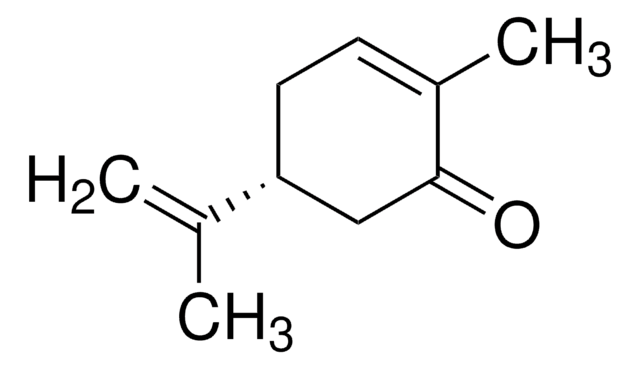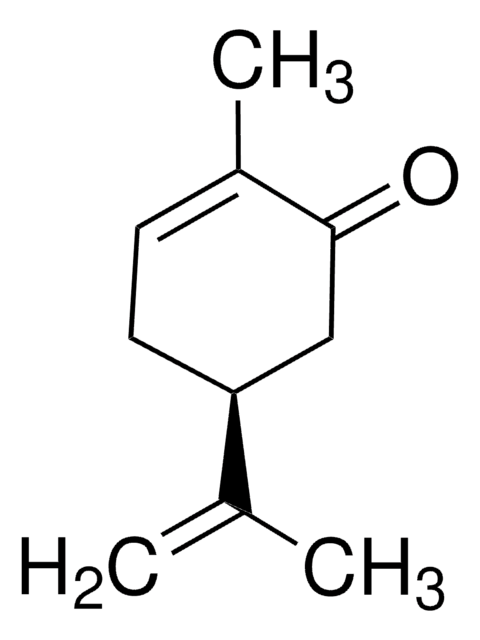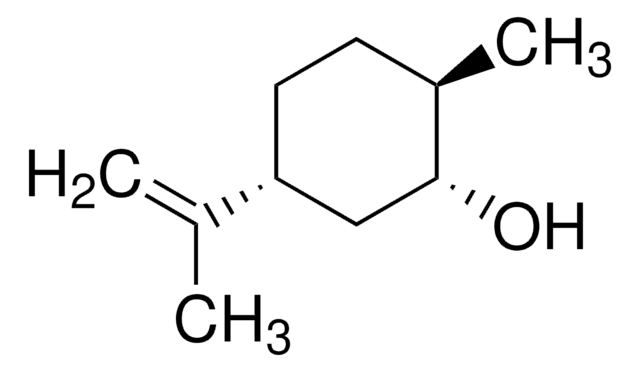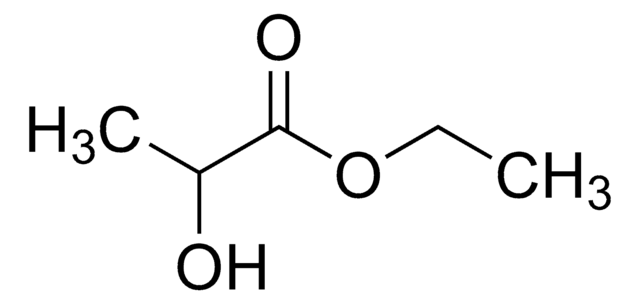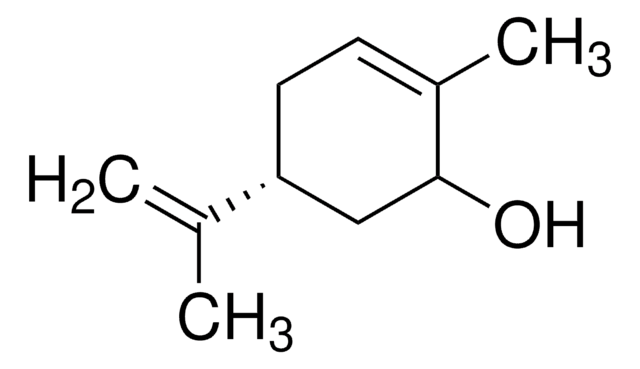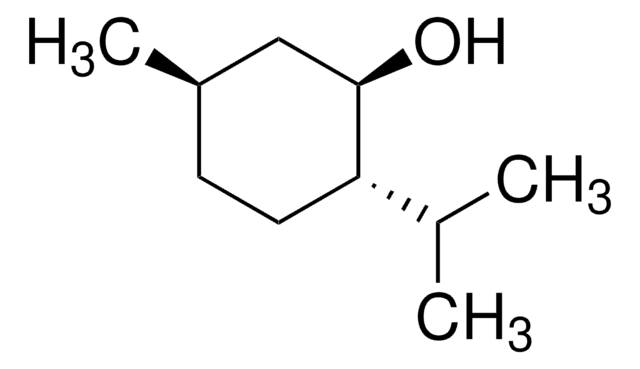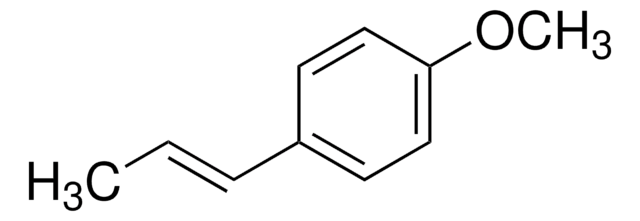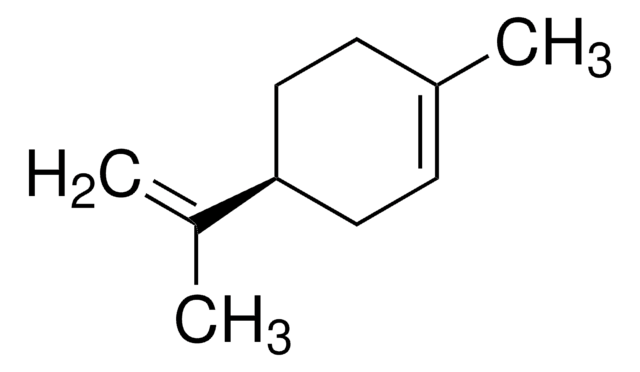W224908
L-Carvone
natural, 99%, FG
Synonym(s):
(R)-(−)-Carvone, (−)-Carvone, (R)-5-Isopropenyl-2-methyl-2-cyclohexenone, p-Mentha-6,8-dien-2-one, Carvol
About This Item
Recommended Products
grade
FG
Fragrance grade
Halal
Kosher
natural
Quality Level
Agency
follows IFRA guidelines
meets purity specifications of JECFA
reg. compliance
EU Regulation 1223/2009
EU Regulation 1334/2008 & 178/2002
FDA 21 CFR 117
vapor density
5.2 (vs air)
vapor pressure
0.4 mmHg ( 20 °C)
Assay
99%
composition
contains IFRA restricted carvone
refractive index
n20/D 1.497 (lit.)
bp
227-230 °C (lit.)
density
0.959 g/mL at 25 °C (lit.)
application(s)
flavors and fragrances
Documentation
see Safety & Documentation for available documents
food allergen
no known allergens
fragrance allergen
carvone
Organoleptic
herbaceous; spearmint
SMILES string
CC(=C)[C@@H]1CC=C(C)C(=O)C1
InChI
1S/C10H14O/c1-7(2)9-5-4-8(3)10(11)6-9/h4,9H,1,5-6H2,2-3H3/t9-/m1/s1
InChI key
ULDHMXUKGWMISQ-SECBINFHSA-N
Looking for similar products? Visit Product Comparison Guide
General description
Signal Word
Warning
Hazard Statements
Precautionary Statements
Hazard Classifications
Acute Tox. 4 Oral - Skin Sens. 1
Storage Class Code
10 - Combustible liquids
WGK
WGK 1
Flash Point(F)
192.2 °F - closed cup
Flash Point(C)
89 °C - closed cup
Regulatory Listings
Regulatory Listings are mainly provided for chemical products. Only limited information can be provided here for non-chemical products. No entry means none of the components are listed. It is the user’s obligation to ensure the safe and legal use of the product.
FSL
Group 4: Flammable liquids
Type 3 petroleums
Hazardous rank III
Water insoluble liquid
ISHL Indicated Name
Substances Subject to be Indicated Names
ISHL Notified Names
Substances Subject to be Notified Names
JAN Code
W224908-100G-K:4548173334394
W224908-1KG-K:4548173334400
W224908-500G-K:4548173334417
W224908-SAMPLE-K:
W224908-VAR-K:
W224908-BULK-K:
Choose from one of the most recent versions:
Already Own This Product?
Find documentation for the products that you have recently purchased in the Document Library.
Customers Also Viewed
Our team of scientists has experience in all areas of research including Life Science, Material Science, Chemical Synthesis, Chromatography, Analytical and many others.
Contact Technical Service